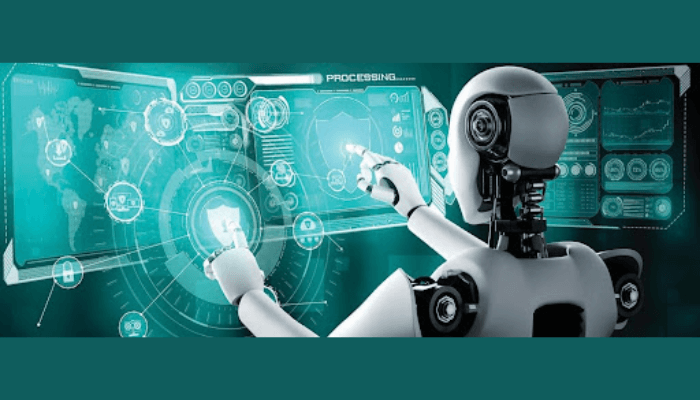
BusinessDay
Ibrahim Adeyemi
June 7, 2025
According to Ridwan Kolawole, a lecturer at University of Ibadan, “Artificial Intelligence (AI) is like having a second brain, it can provide support, but it cannot replace your own thinking.”
However, Kolawole said the problem with many students is that they are now relying solely on AI, ignoring other sources of information.
Research has shown that there is a massive surge in AI adoption among Nigerian students, particularly in tertiary institutions.
This is simply because machine learning generative tools such as ChatGPT, and Germini, among others have become indispensable for academic success in the contemporary era.
Nevertheless, in the face of numerous benefits of machine learning tools, stakeholders are worried about the tendency of students’ misuse and the ethical questions surrounding academic integrity.
For its 2024 Global AI Student Survey, the Digital Education Council looked at 3,839 student responses across 16 countries. According to that survey, on average, students used 2.1 AI tools for their courses, with ChatGPT, 66 percent being the most common tool used, followed by Grammarly and Microsoft Copilot, with 25 per cent each.
The study found that despite their wide use of AI tools, the students were not confident about their AI literacy.
Fifty-eight per cent of the students reported that they did not have sufficient AI knowledge and skills, and 48 per cent felt inadequately prepared for an AI-enabled workforce.
The consequences of replacing hard work with AI amid a sharp rise in plagiarism and intellectual laziness in students could become disastrous if not curbed in time.
Fears are also rife that poor electricity and inadequate Information and Communication Technology (ICT) facilities, typical of ill-equipped 20th-century tertiary institutions, could forge a strong romance between students and AI, thereby shredding what remains of the country’s education fabric.
Many students today see AI as a lifeline, especially with many Nigerian institutions’ librarries lacking contemporary reading materials.
While specific data about the number of students using AI in Nigeria’s tertiary institutions is not available, various studies indicate that a moderately growing number of scholars are aware of AI tools for academic purposes, with the attendant concern about the ethical implications of AI in cheating and less academic rigour.
Stanley Boroh , senior lecturer at Federal University, Otuoke in Bayelsa State emphasized that Ai is gradually becoming a menace in the education-space.
However, he pointed the fact that AI has come to stay, when he said, “The first thing is to accept the fact that AI has come to stay and the earlier we accept that fact the better for us, but the problem is in its usage. I believe it should be used ethically.”
Uchenna Uzo, a faculty director at Lagos Business School (LBS) said the reality is that AI is transforming the way students engage with their learning.
“A lot of students are now using AI to improve the speed of their learning, fast-track their understanding of the basic principles and to create solutions, among others,” he said.
He emphasized, however, that this puts a challenge to the instructors who must be ahead of the students in terms of how to use AI for learning.
Furthermore, he stressed that AI is a catalyst and a companion for learning, and that everyone in the education space must embrace the fact that it has come to stay.
However, he said that on the downside, AI for a lazy student, he or she will end up becoming lazier using the learning machine.
“I wouldn’t say we should blame AI for lazy students, he who is lazy will expand his laziness with the use of AI,” he noted.
Uzo disclosed that there are ethical, legal and regulatory issues with the use of AI tools and that they are still unfolding on how to moderate the use in an academic environment.
“We need the right policies to moderate AI tools usage in the academic space; of course, there are issues about plagiarism, fraud and so many terrible things.
“People could use it to produce fake products, assignments, and even impersonate others,” he said.
To address the ill-effects of AI, the academia called for collaboration among everyone in Nigeria’s education to get students to use the tools in the proper way.
The abuse of AI is not only done by students but even academics and researchers alike, it has made people so lazy thereby not using their brain. AI should be used ethically and it is for smart people and to make your work easier, and not meant to do all your work for you.
Study has shown that AI governance practices remain a barrier, as only very few of the faculty are fully aware of their institutional AI guidelines and feel they are fully comprehensive.
In 2024, Nigeria released a draft National AI Strategy, focusing on ethical AI development with fairness, transparency, accountability, and privacy principles.
In the same vein, UNESCO’s recent report called for institutions to regulate AI use in education by auditing algorithms and data sources to ensure ethical standards.
The report also stressed the need to assess AI’s long-term impact on skills like critical thinking and creativity, while implementing policies aligned with global ethical frameworks.
Join BusinessDay whatsapp Channel, to stay up to date
Join BusinessDay whatsapp Channel, to stay up to date



